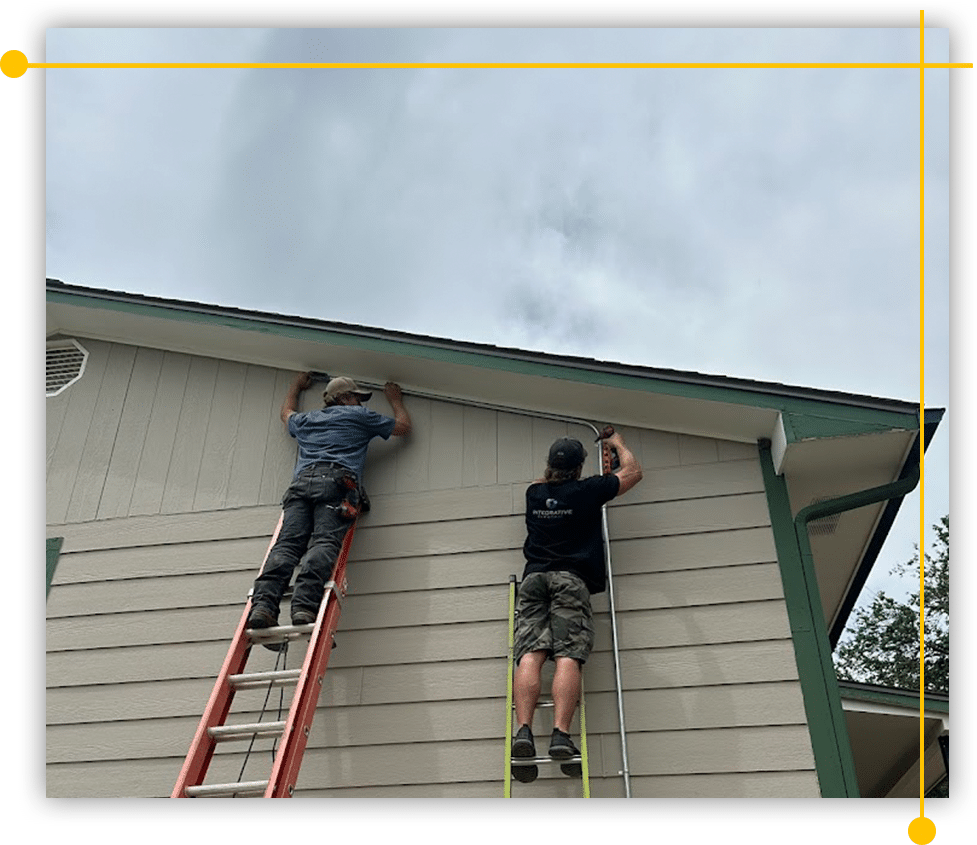Blog

Get in Contact with Us Today!
Fill out the form below or call
(970) 592-8298
to get started.
Get in Contact with Us Today!
We will get back to you as soon as possible.
Please try again later.
Our Services
Top Electrical Safety Tips Every Homeowner Should Know

Electricity is something most of us use every day without giving it much thought. From powering our kitchen appliances to charging our devices, it plays a vital role in keeping our homes comfortable and functional. Yet, electrical systems can also pose serious hazards if not handled properly. According to the Electrical Safety Foundation International, thousands of electrical fires and accidents occur each year in homes across the U.S. Many of these incidents are preventable with proper precautions and awareness.
At
Integrative Electric, we’ve seen firsthand how small issues can turn into major safety concerns. Whether you live in a brand-new home or one built decades ago, prioritizing electrical safety should be at the top of your list. In this guide, we’ll share the top electrical safety tips every homeowner should know to help you protect your home, your family, and your investment.
1. Never Overload Outlets or Power Strips
One of the most common causes of electrical fires is overloaded outlets. Plugging too many devices into one outlet or power strip can cause overheating, which increases the risk of fire.
Best practices include:
- Only plug one major appliance into each outlet.
- Use power strips with built-in surge protection.
- Avoid connecting multiple extension cords together.
- Routinely check outlets and power strips for signs of overheating, such as discoloration or a burning smell.
If you consistently find yourself running out of outlets, it’s a good sign that your electrical system needs an upgrade. A licensed electrician can install additional outlets or circuits as part of professional
electrical services to meet your household’s needs safely.
2. Keep Electrical Cords in Good Condition
Cords are often overlooked, yet they’re a frequent source of electrical problems. Frayed, cracked, or pinched cords can expose wires and create shock or fire hazards.
Here are a few things to remember about cord safety:
- Replace damaged cords immediately.
- Never run cords under carpets or rugs where they can overheat.
- Avoid stapling or nailing cords to walls.
- Use cords that are rated for the intended use—indoor cords should not be used outdoors.
If you rely heavily on extension cords, it might be time to consider installing additional outlets where you need them most.
3. Regularly Inspect and Upgrade Your Electrical System
Older homes, especially those built more than 30 years ago, may have outdated wiring that can’t handle modern electrical demands. Aluminum wiring, knob-and-tube systems, or outdated panels can all pose significant risks.
Key warning signs that your electrical system may need an upgrade include:
- Frequent tripped breakers or blown fuses.
- Flickering or dimming lights.
- Outlets that feel warm to the touch.
- Burning smells or buzzing sounds near outlets or switches.
Scheduling regular electrical inspections with a licensed electrician ensures your system is up to code and safe. At Integrative Electric, we specialize in
electrical service panel upgrades, and
electrical troubleshooting for homeowners throughout Grand Junction, CO, giving homeowners peace of mind that their electrical setup is safe and efficient.
4. Install GFCI and AFCI Protection
Ground Fault Circuit Interrupters
(GFCIs) and
Arc Fault Circuit Interrupters
(AFCIs) are devices designed to protect your home and family from serious hazards.
- GFCIs are typically required in areas with high moisture, such as kitchens, bathrooms, laundry rooms, garages, and outdoor outlets. They protect against shock by shutting off power when an imbalance is detected.
- AFCIs are designed to protect against fires that are caused by electrical arcs. These are often installed in bedrooms, living rooms, and other general living areas.
Installing these protective devices is a relatively simple upgrade, but they can dramatically reduce the risk of both shock and fire.
5. Practice Safe Habits Around Electricity
Even if your home is equipped with the latest safety features, everyday habits play a big role in keeping your household safe.
Here are some essential safety habits every homeowner should adopt:
- Always turn off the breaker before working on any electrical project.
- Keep appliances away from water sources.
- Teach children not to touch outlets, cords, or electrical devices with wet hands.
- Unplug small appliances like toasters, coffee makers, and hair dryers when not in use.
- Test your smoke detectors monthly and ensure your home has a fire extinguisher rated for electrical fires.
By combining proper equipment with safe habits, you can significantly lower your risk of electrical accidents.
Contact Integrative Electric for Professional Electrical Services
While following these safety tips can go a long way in protecting your home, there are times when professional help is necessary. From installing new outlets to upgrading outdated wiring, hiring a licensed electrician ensures the job is done safely and correctly.
At Integrative Electric, we are proud to serve homeowners in Grand Junction, CO and the surrounding areas with reliable electrical services. Whether you need a full inspection, panel upgrade, lighting installation, or emergency repair, our team has the expertise to handle it all.
Protect your home and family by choosing an experienced, trustworthy team. Call us today at (970) 319-0676 to schedule an appointment and let us keep your electrical system running safely and efficiently.
Frequently Asked Questions
How often should I have my electrical system inspected?
While it's generally a good idea to have a professional electrician check your home's wiring and electrical components every 3 to 5 years, the ideal frequency can vary. However, if your home is older or you notice warning signs like flickering lights or tripping breakers, you should schedule one sooner.
Are extension cords safe for long-term use?
No. Extension cords are designed for temporary use only. Relying on them long-term can increase the risk of overheating, shock, or fire.
What should I do if I smell something burning near an outlet?
Turn off the power at the breaker immediately and call a licensed electrician. A burning smell is often a sign of faulty wiring or overheating.
Will I need an electrical panel upgrade when installing new appliances?
In many cases, yes. Large appliances like HVAC systems, ovens, or hot tubs require dedicated circuits. An electrician can assess whether your current panel has the capacity.
What’s the difference between a breaker and a fuse?
Both protect your electrical system from overloads, but breakers can be reset, while fuses need to be replaced. Modern homes typically use breakers, as they’re more convenient and reliable.
Don’t delay.
Contact us today!

